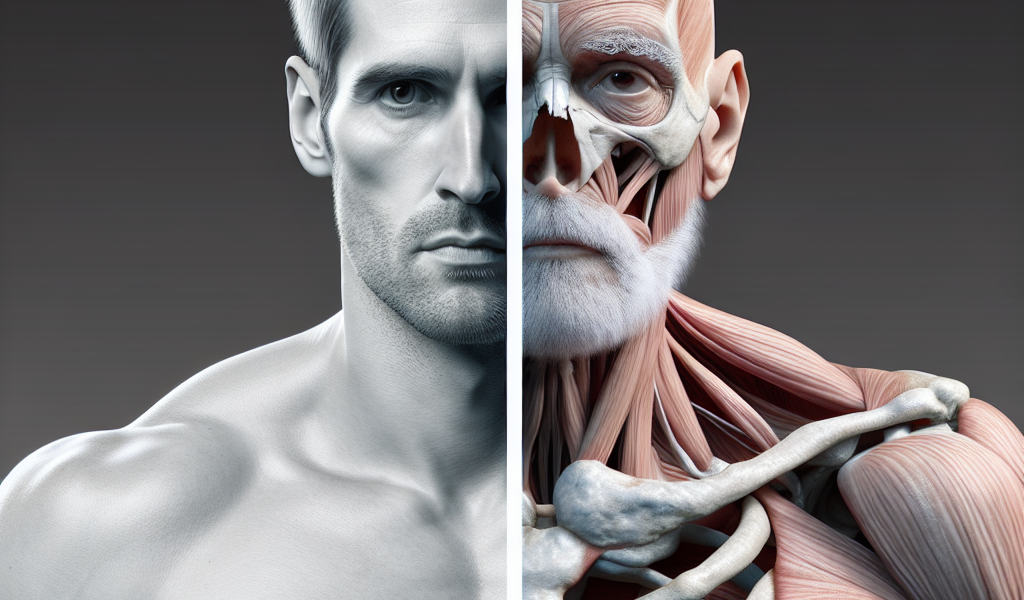Understanding the Reasons Behind Weight Loss in Cancer Patients
In “Understanding the Reasons Behind Weight Loss in Cancer Patients”, you will uncover the complexities encircling a topic often shrouded in uncertainty and concern. Navigating through various aspects of extreme weight loss linked to cancer, this article will clear doubts about rapid, dramatic weight reduction often witnessed in cancer patients. By discovering the intimate connection between these two factors, you’ll be better prepared to empathize, assist and support those who are battling this debilitating disease. Not just a guide for understanding weight loss, this also provides you with foundational knowledge about control measures and steps to mitigate such situations. This is essential reading for anyone touched by cancer’s far-reaching impact.

Understanding Cancer-Induced Cachexia
When it comes to cancer, one of the most common and distressing symptoms that you or a loved one may experience is weight loss. This weight loss is often accompanied by muscle wasting, a phenomenon known as cachexia.
Definition of Cachexia
You may be asking, what exactly is Cachexia? Simply put, Cachexia is a complex metabolic syndrome that comes with loss of muscle mass, with or without the loss of fat mass. In most cases, it is often seen in patients suffering from chronic diseases like cancer.
Statistics on Cachexia among Cancer Patients
Now, you might be thinking about how frequent cachexia happens among cancer patients. Believe it or not, approximately 50% of all cancer patients suffer from cachexia. The occurrence may even rise as high as up to 80% in advanced stages of the disease, especially in cases of gastrointestinal tract and lung cancer.
Impact of Cachexia on Cancer Patients’ Quality of Life
Cachexia, however, is not just about the physical appearance of weight loss. It significantly impairs the quality of life for you as a cancer patient. This is because it affects physical function, increases fatigue, and reduces tolerance to treatment, all of which could lead to poor prognosis.
Role of Cancer in Metabolism Changes
Cancer has a significant influence on the metabolic processes in your body. This alteration of the normal metabolism plays a big part in the weight loss seen in cancer patients.
How Cancer Alters Normal Metabolism
The presence of cancerous cells in your body interferes with the normal functioning of your metabolism. The tumor cells are highly active and rapidly growing, and they need a lot of energy to sustain their rapid growth. Consequently, they take up more nutrients than the normal cells, a form of metabolic hijacking that leads to nutrient deprivation for the rest of your body.
Impact of Metabolism Changes on Body Weight
A disrupted metabolism due to cancer directly correlates with significant weight loss, as the body continues to deplete its nutrient stores in a futile bid to feed the nutrient-hungry cancer cells.
Link Between Metabolic Changes and Cachexia
Metabolic changes due to cancer contribute significantly to the development of cachexia. As explained, the altered metabolism makes your body consume more energy, leading to the breakdown of muscle mass and fat-similar to the processes that occur in cachexia.

Impact of Tumors on Body Weight
Tumors have a significant impact on your body’s weight. This effect is mainly due to the high energy consumption of the tumor cells, causing severe weight loss.
How Tumors Consume Body’s Energy
Tumor cells are a lot like parasites. They take up most of the nutrients available to them, using it up to replicate and expand. This not only deprives the rest of your body of needed nutrients, but also strains your energy reserves, leading to weight loss.
Effect of Tumor Growth on Appetite
Furthermore, the growing presence of cancerous cells in your body may cause a drop in your appetite. This can be caused both by the physical presence of tumors (for example, those in the stomach or intestines can make you feel full faster), and by the body’s response to the disease, which can also decrease appetite.
Tumor-Induced Hormonal Changes Affecting Body Weight
In response to the presence of tumors, your body may trigger hormonal changes that can affect your body weight. For instance, the hormone leptin, which regulates appetite and metabolism, is often found in lower levels in cancer patients. This might influence your body’s ability to maintain a healthy weight.
Influence of Cancer Treatment on Weight Loss
While treatment for cancer is crucial, it can also contribute to weight loss, due to side effects like diminished appetite, nausea, and changes in how the body absorbs nutrients.
Weight Loss as Side Effect of Chemotherapy
Chemotherapy, for example, one of the most commonly used cancer treatments, frequently causes significant weight loss. This is due to a variety of factors, including nausea, vomiting, and a general loss of appetite, all of which are common side effects of the treatment.
Impact of Radiation Therapy on Appetite and Digestion
Radiation therapy also plays a role in weight loss. This form of treatment often leads to inflammation and damage to the gut lining, which can impair the digestion and absorption of nutrients, leading to weight loss.
Role of Surgery in Weight Loss Among Cancer Patients
Surgery may result in immediate weight loss, depending on the location and extent of the operation. Post-surgery, patients often experience decreased appetite and changes in the way their body digests food, which can in turn contribute to sustained weight loss.

Psychological Factors Leading to Weight Loss
Your mental health also plays a significant role in weight loss during cancer treatment. The emotional distress associated with a cancer diagnosis can lead to changes in eating habits and a general decline in physical health.
Stress and Anxiety Impact on Eating Habits
You may experience an overwhelming amount of stress and anxiety following a cancer diagnosis, which can significantly disrupt your normal eating habits. The unease and apprehension can lead to loss of appetite and skipping meals altogether, resulting in weight loss.
Depression Impact on Body Weight
Depression is another psychological condition that can trigger weight loss. It may cause you to have a reduced interest in food and can lead to neglecting your dietary needs, hence contributing to the overall weight loss.
The Connection between Emotional Well-being and Physical Health
Remember, there’s a strong connection between your emotional well-being and your physical health. Lingering psychological distress can take a toll on your physical health, including leading to significant weight loss.
Gastrointestinal Symptoms Leading to Weight Loss
The gastrointestinal tract is often affected during cancer and its treatment, leading to symptoms that can contribute to weight loss.
Nausea and Vomiting as Symptoms of Cancer
Nausea and vomiting, whether caused by the disease itself or as side effects of treatment, can make it incredibly challenging for you to maintain sufficient nutrient intake. This obviously can result in weight loss.
Difficulty in Swallowing in Cancer Patients
Difficulty or discomfort while swallowing, also known as dysphagia, may result from certain types of cancer or their treatment, making it hard for you to eat properly.
Changes in Taste and Smell Affecting Eating Habits
Changes in taste or smell are also not uncommon and can lower your appetite and affect your eating habits significantly, ultimately leading to weight loss.
The Role of Inflammatory Response in Weight Loss
Your body’s inflammatory response to cancer can also play a considerable role in causing weight loss.
Understanding the Body’s Inflammatory Response to Cancer
When cancer is present, your body’s immune system triggers an inflammatory response. This inflammation can affect various body systems, including the gastrointestinal system, ultimately influencing body weight.
Impact of Inflammation on Nutrient Absorption
Inflammation may impair your gut’s ability to absorb nutrients properly. With less intake of nutrients, your body might start utilizing its stores of fat and muscle, resulting in weight loss.
Correlation between Inflammation and Cachexia
Inflammation can greatly contribute to the development of cachexia. Research has shown an association between chronic inflammation and cachexia in cancer patients, with inflammatory cytokines playing a significant role in the development of this condition.
The Impact of Decreased Nutrient Absorption
Decreased nutrient absorption plays a significant role in cancer-induced weight loss. It can be caused by the cancer itself, its treatment, or accompanying gastrointestinal symptoms.
Malabsorption Syndrome in Cancer Patients
Malabsorption syndrome refers to a number of disorders in which nutrients from food are not adequately absorbed in the small intestine. You could be eating enough, but your body isn’t absorbing those nutrients well, leading to wasting and weight loss.
Effect of Cancer and Its Treatment on Gut Function
Cancer and its treatments can severely affect your gut function. For instance, radiation and chemotherapy can damage the gut lining, affecting the absorption of essential nutrients.
How Malnutrition Contributes to Weight Loss
Malnutrition, which is the insufficient intake or absorption of nutrients, can speed up the weight loss caused by cancer. This is because when your body doesn’t have enough nutrients, it begins to break down its stored fat and muscle for energy, leading to a further decrease in body weight.
Nutritional Intervention Strategies
Managing weight loss in cancer patients often involves nutritional strategies to maintain a good nutritional status and preserve muscle mass.
Importance of Nutrition in Cancer Care
Good nutrition plays a vital role in cancer care. During treatment, your body needs more nutrients than usual to maintain normal bodily functions and heal. Ensuring you consume a balanced diet can help bolster your immunity, speed recovery and avoid excessive weight loss.
Dietary Recommendations for Cancer Patients
There’s no one-size-fits-all eating plan for cancer patients, but a diet rich in lean proteins, fruits, vegetables, and whole grains is usually recommended. Including high-protein foods can help maintain muscle mass, while fruits and vegetables provide necessary vitamins and minerals.
Role of Nutritional Supplements in Managing Weight Loss
Nutritional supplements can play a significant role in the management of weight loss among cancer patients. These provide that extra kick of calories and nutrients that you need, especially if you’re struggling to maintain your food intake.
Living with Weight Loss and Cancer
Living with cancer and consequent weight loss can indeed be challenging; however, right intervention strategies and regular monitoring can ensure better coping and recovery.
Challenges Faced by Cancer Patients with Weight Loss
Having cancer and dealing with weight loss issues can pose challenges. From having to face the physical changes in your body and adapting to a new diet, to feeling exhausted and coping with the emotional stress, it’s definitely not an easy journey.
Psychological Support and Counseling
Psychological support and counseling play a crucial role in helping cancer patients deal with weight loss. By talking to a psychologist or counselor, you can explore ways to cope better with your situation. Mindfulness techniques or stress management strategies can also help improve your appetite and overall health.
Importance of Regular Monitoring and Care
Lastly, regular monitoring by healthcare professionals is essential to check your health status and body weight. Nutrition assessments and regular check-ups provide an opportunity to adjust your diet or medication, ensuring optimal care and improving your quality of life. Remember, although weight loss can be a challenging part of dealing with cancer, it can be managed effectively with the right care and support.

